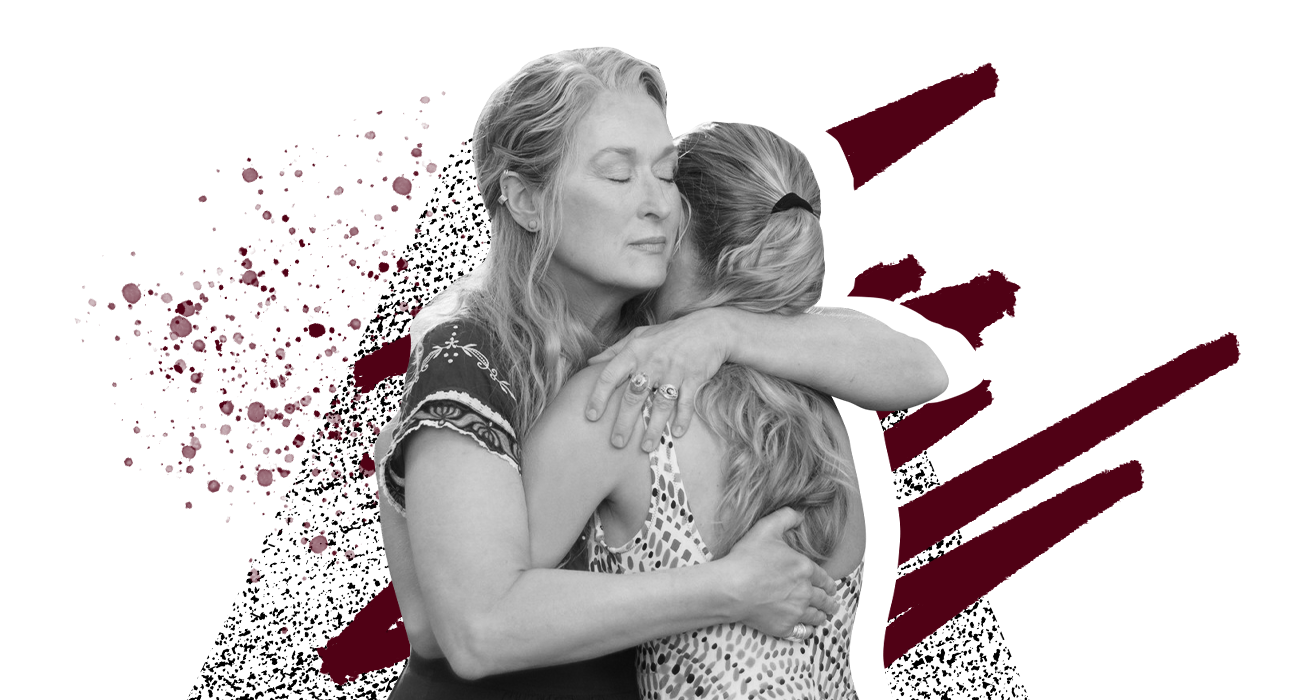When I was 14, I sat in the living room, watched the movie “It’s good to be quiet” and “I wish I could be an adult!” Like any teenager who’s seen enough American movies, I wanted to go to college, get away from my family, and live in a real student dormitory. And now I’m 22, graduated from college a week ago and still live with my parents.
According to statistics for 2021, more than a quarter of young people aged 18 to 35 years in Russia live with their parents. In the United States, the numbers are similar: In the same year, 25% of people aged 25 to 34 lived in multi-generational households. For comparison, it was the same nine percent in 2010.
Previously, people were separated from their parents either at 18 (after graduating and being accepted) or at 22 (after graduating from college). But in the last 10 years, the proportion of those who continue to live with their parents after graduation has been increasing. What is the reason for this, what do psychologists and those involved in the process think about it? We tried to understand this.

There are several reasons that explain this trend.
financial instability People living with their parents mostly do not work, they study. Those who take care of themselves often have to combine the two.
rental price. On average, for more than 20 years, housing prices in Russia have increased 10 times. As a result – rent too. Therefore, it is almost impossible to find affordable housing without working after graduating from school or university.
Inflation. In the past two years, inflation in Western countries has reached its highest levels in decades, according to RBC. This means that the cost of goods is constantly increasing. But wage growth often doesn’t keep up with inflation.
To summarize, we can conclude that the main reasons for living in the parental family are economic. We decided to confirm this and ask our heroes not only why they live with their parents, but also what they see as the pros and cons of such a lifestyle. The opinions of our heroes are divided.

Polina, 29 years old, designer
I have been living with my family for a year. Before that, I rented an apartment with my boyfriend. And after leaving, I lived alone for another six months. Then there were uncertainties at work and no financial opportunity to shoot the film itself. Returning to my family was difficult. There was a kind of retrieval feeling. But there was no other choice. My family accepted me calmly, they understood me and in general we have a good relationship. I planned to live with them for six months until the work situation improved. But in the end, everything dragged on. I’ve started to feel pressure from them over the past few months – I realize for myself that at 29 it will be time to live apart after all. Therefore, he offered the option to pay rent while I was at their apartment. They agreed. The amount is small, of course, but I no longer hear the accusations leveled against me.
I actually like living with my family. This is much more interesting. I like to have everyone having dinner together, waiting for you at home, when you need to cook for more than one person, having someone to feed and walk my dog, even arguing over a mess. In the near future, I still want to act and live on my own, but with my family, I see more pluses than minuses in life.
Alisa, 24 years old, teacher
I have been working as an English teacher since my first year of university. I have a remote job that I have combined with my work all this time. I graduated from college two years ago and thought about renting my own flat. But my mother dissuaded me. She left her family immediately after school and had to work as a waitress in parallel with her studies to rent a studio on the outskirts of Moscow. He went to college during the day, then to his shift. That’s why he didn’t want me to do the same. And as far as I can remember, we all lived together. I think she’s afraid of being alone.
For me now this is a good opportunity to save on rent and become more stable financially in some way. Moreover, I am moving towards individual entrepreneurship, so I try to save as much as possible while there is such a chance.

Elijah, 21, student
I recently returned from an exchange program. He went to America for nine months. And this May I returned to my hometown, to my mother. I lived with it before that too, but we didn’t have any particular issues. But after living in a hostel for almost a year, I apparently forgot what it was. My mother constantly complains about the mess in the room and in such a way that I feel at home rather than at home. And she gets even more angry with me when I tell her about it. I feel like I don’t have enough room at home and even though it doesn’t bother anyone, when he tells me to put things away, I feel like he’s stealing even the little space I have.
It’s hard for me because I’m so financially dependent on him now. Therefore, according to their rules, I live in an apartment. If I’m pretty neat and tidy, then it’s a textbook example of neatness, and my level seems sloppy to him. He said I was like this after America recently. But it is not. Only during this time he got used to living alone by his own rules, and it is already unusual for him to have something different at home. And it’s hard for me to conform to his rules because I know my limit.
Sonia, 25 years old
Our relationship with our parents has always been strained. We often quarreled, scandalized, so when I graduated from school, I immediately began to live separately. And I can say that this has literally acted like a Band-Aid to our relationships – they’ve improved almost instantly. We became an exemplary family that met once a month, happily spent a day or two together, and then moved on with our lives.
I guess things wouldn’t be so rosy if I’d stayed with them. I live in another city so I usually come to them for more than a day. I’ve noticed that if I stay longer than a week, the discussions start again. So I no longer make such mistakes.
Another thing to consider when talking about life with parents in adulthood is separation. Is it possible to start this process and how to do it if there is no opportunity to live independently? They asked psychologist Maria Potudina.

Maria Potudina, psychologist

Separation is a lifelong process with varying degrees of success. We have several stages and types of separation.

The first stage begins at the age of three, when the child learns to say “no”, realizing himself as a separate person. And then every year there is a new phase. It’s like a rocket whose nests are separated depending on the height it takes. But some homes stay forever because we are interdependent beings. We are born first and are completely dependent on our parents. And in old age, our parents become almost completely dependent on us. And only in the middle of life there is a period of relative independence.

Yes, if you have established normal and respectful relationships, respect for personal space, an eco-structure where you may disagree with each other even if you are in the same apartment, but at the same time separation can be successful. give the other person the opportunity to get your opinion.

Therefore, if it is possible to build relationships in this way and for both parties (both parents and children), then it is not so important where people are physically located. That is, the separation need not be linked to geographic distance.

Separation is a reciprocal process. Initially, the parent is responsible for this as they are adults. The reaction of the parents to the child’s word “no”, the word “I don’t want”, and the parent’s way of relating to the child’s normal manifestation of independence constitute separation processes. Then the child grows up and takes responsibility for himself.

There is such a thing as “social death” in psychology. This is when a parent comes along and realizes they have nothing to do and retire. If an adult has not established interests outside of work during this time, he is in fact dealing with a very strong existential anxiety. And it often bites an already adult child at this time, preventing the completion of the natural process of separation. If an immature person is faced with such parental behavior, the relationship becomes very unhealthy. And here it does not matter whether people live together or separately.
Living with parents has many advantages – you can become more financially stable during this period, there are always people by your side who are ready to take care and help. However, so that all these pluses do not overlap with one big minus, there is a need for mutual work on relationships from both the child and parent perspective.
Source: People Talk
Errol Villanueva is an author and lifestyle journalist who writes for The Fashion Vibes. With a passion for exploring the latest trends in fashion, food, travel, and wellness, Errol’s articles are a must-read for anyone interested in living a stylish and fulfilling life.





